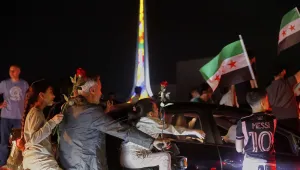Speaker: Maria Koinova, Reader in International Relations, University of Warwick; Senior Research Fellow, Kroc Institute for International Peace Studies, University of Notre Dame
This presentation introduces findings from the large-scale European Research Council Starting Grant "Diasporas and Contested Sovereignty," directed by Dr. Maria Koinova as a Principal Investigator at the University of Warwick (2012–2017). Why do conflict-generated diasporas in liberal states mobilize transnationally in moderate or contentious ways for their homelands experiencing contested sovereignty? How contexts shape diaspora mobilizations is crucial. Koinova's work evolving from this project challenges statist theories analyzing the role of diasporas in conflict processes through interactions between diasporas, host-states, and home-states. It offers a fresh socio-spatial positional perspective, emphasizing the socio-spatial linkages diaspora entrepreneurs hold to different global contexts. Beyond considering diasporas as groups, but focusing on the under-researched individual level of diaspora mobilizations, she develops four types of diaspora entrepreneurs. A typological theory explains how the strength and weakness of their socio-spatial linkages to different global locations, in conjunction with host-land foreign policies, homeland influences, and critical junctures, lead to mobilization trajectories channeling homeland-oriented goals through the host-state, international institutions, or transnational people-to-people networks, and by way of lobbying or contentious action. Koinova draws on more than 300 interviews that she conducted in over 40 locations in Europe and its near abroad. Although considering empirical examples from the entire globe, the main focus is on diaspora mobilization in five countries in the European Union—the UK, Sweden, Germany, the Netherlands, and France—and specifically on diasporas linked to de facto states, Kosovo, Palestine, and Nagorno-Karabakh.
Please join us! Coffee and tea provided. Everyone is welcome, but admittance will be on a first come–first served basis.


